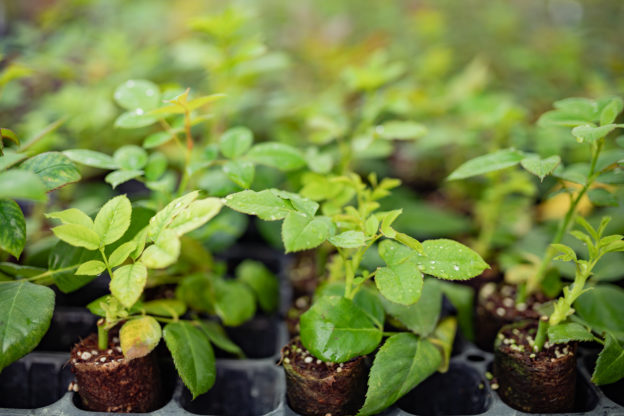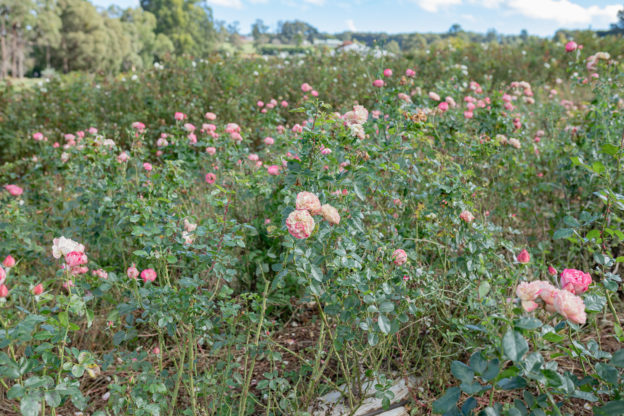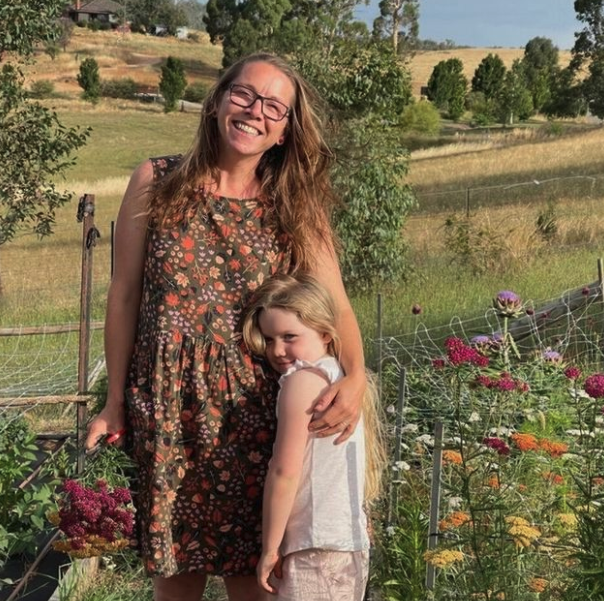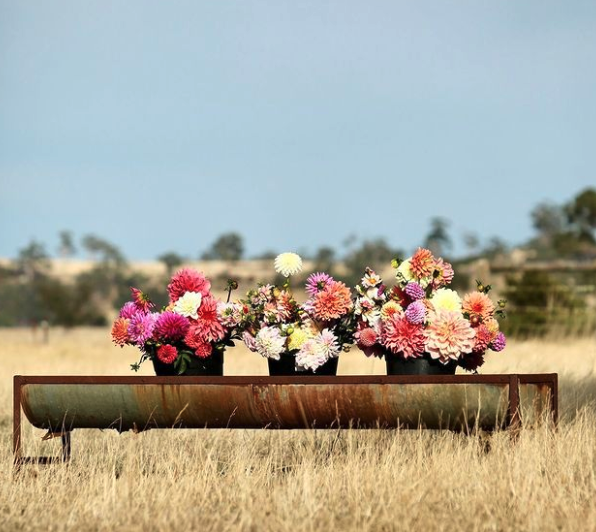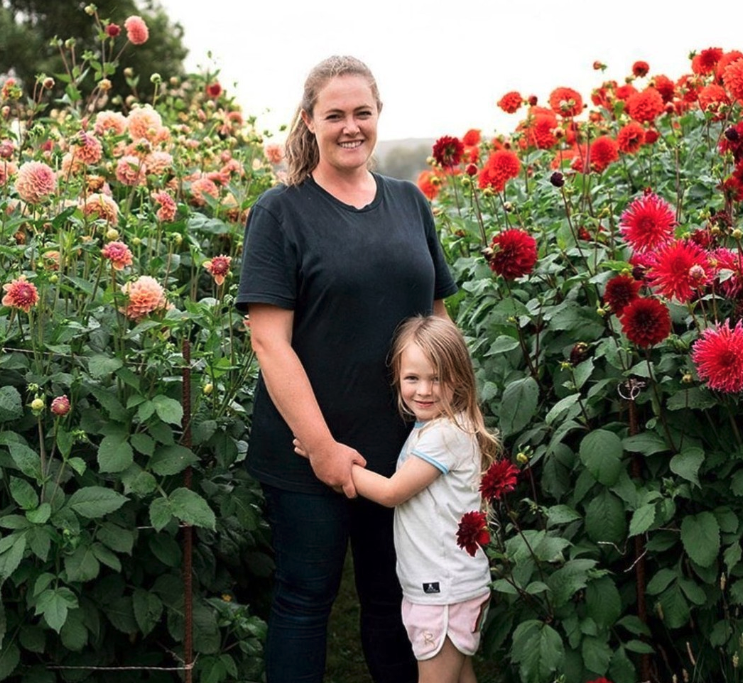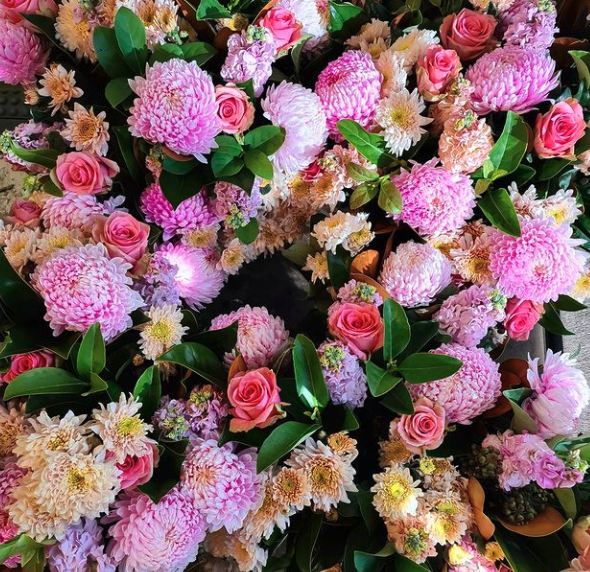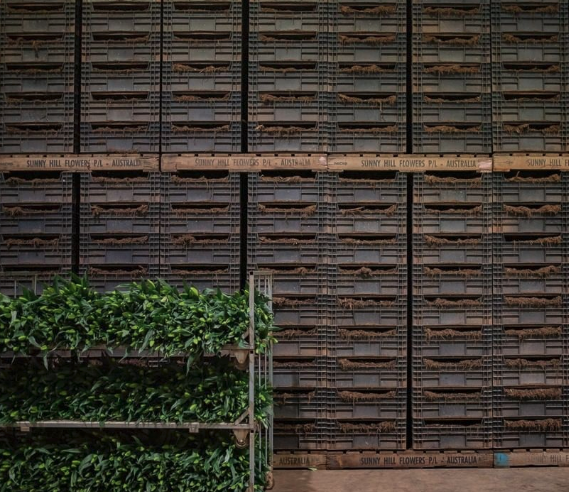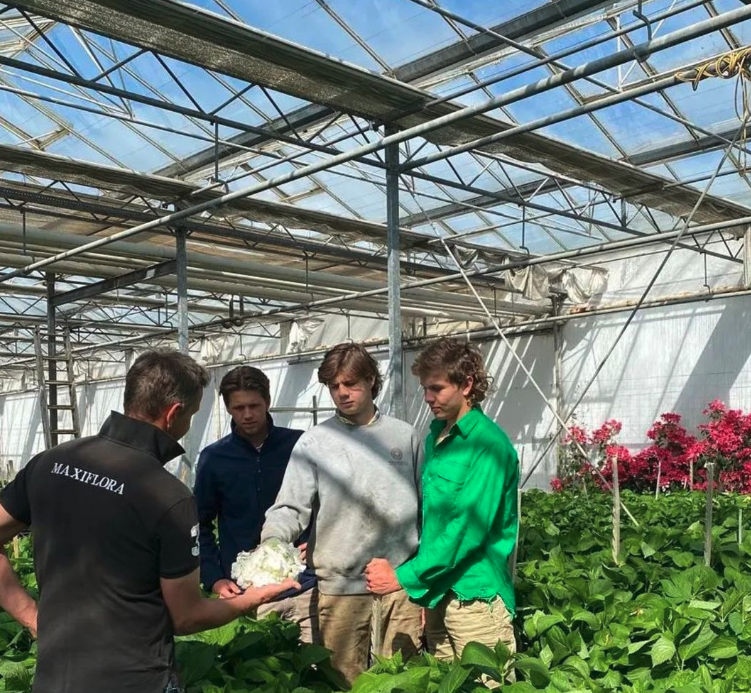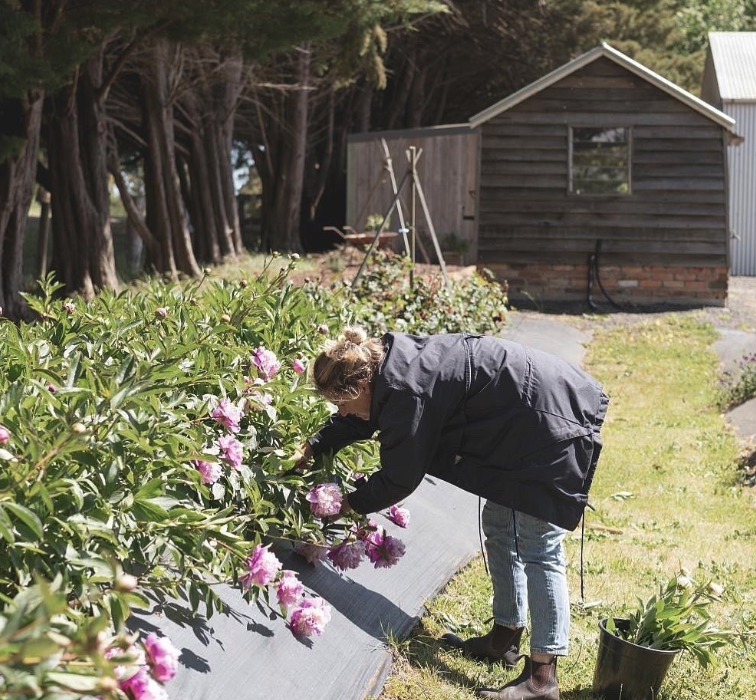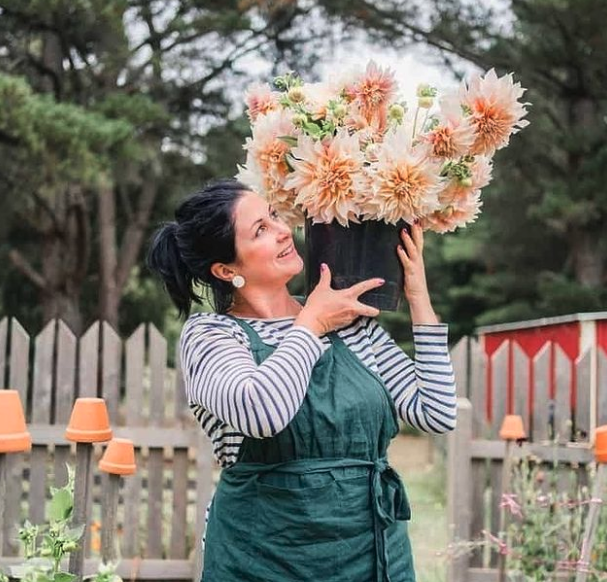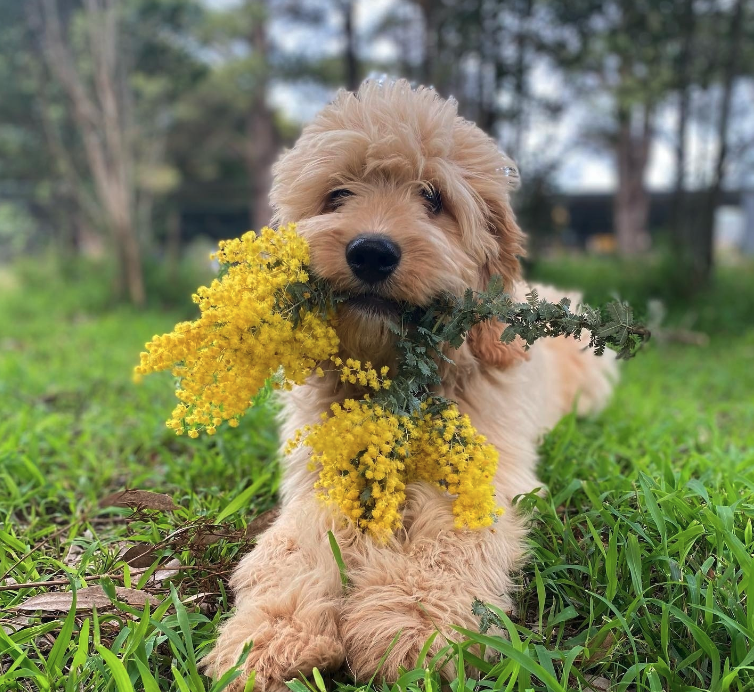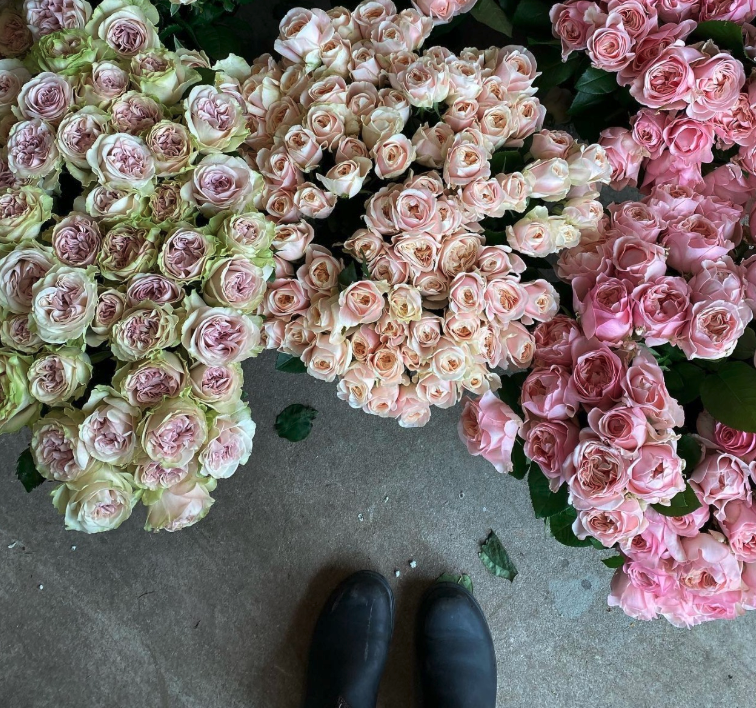Imported flowers are all too common here in Australia, and you’ve more than likely had a bunch in your vase at some point.
The ABC reported that in the winter months, as much as 90% of cut flowers sold in Australia are imports. So why is this happening when we are surrounded by local flower farms? Are imported flowers better than locally grown in any way?
The main appeal of imported flowers is their much lower price point––made possible by low wages and poor working conditions in countries like Kenya and Ecuador. This makes it incredibly hard for local growers to compete price-wise.
However, while you may have to fork out a little more money, there are so many reasons why locally grown flowers are superior to imports.
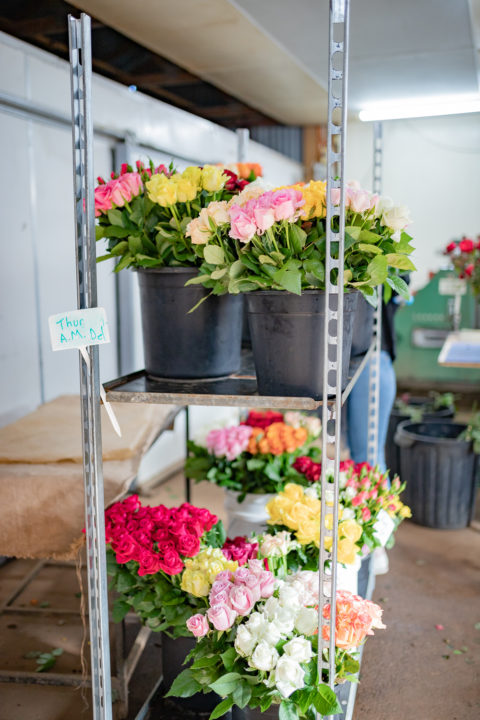
Local flowers are fresher
Imported flowers are cut a week or more before you receive them, in which time they’ve been dehydrating on a plane and suffered harsh fumigation in quarantine. Their freshness––colour, smell and energy––will decline rapidly once you get them, if it hasn’t already done so. Locally grown flowers on the other hand can last for weeks with proper care. They are cut not long before arriving at the market, sometimes on the same day, or a few days before. Locally-grown flowers will have more vibrant colours, smell stronger and look in better shape overall.
You get seasonal, native flowers
There are plenty of flower varieties that are native to Australia, and only bloom at certain times of the year. Local growers work with Australia’s seasons to provide stunning seasonal flowers that you simply can’t find among imported flowers. Native flowers like waratahs, banksias, kangaroo paws and flannel flowers have become more popular choices for wedding bouquets, statement arrangements and gifts, so having access to high quality natives is a must.
Buying local is more sustainable
Imported flowers go through a whole supply chain process before a florist ever gets their hands on them. They’re sourced from farms in developing countries like Kenya and Colombia, before making the long flight to Australia, going through quarantine at the border, then making their way to the wholesaler.
Local flowers on the other hand, are usually grown not far from the market, and have likely been cut within the last 24hrs when you get your hands on them. The whole process from farm to vase is short, simple and easy to track, meaning a much smaller carbon footprint.
Supporting local farmers
When you purchase from a local grower, you’re not only supporting that business, but you’re supporting your local economy and community. Local farmers will also provide that personal touch, going out of their way to get you the flowers you want, compared to the impersonal sales transactions that happen with imported flowers.
If you’re in Melbourne and looking to support local growers in the area, we’ve put together a list of a few of our fave local growers for you.
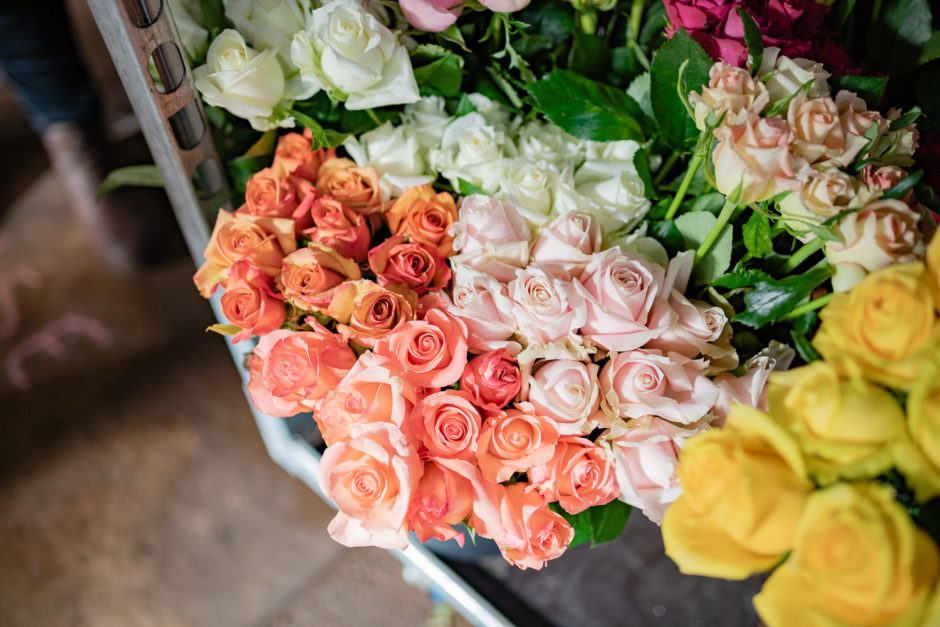
No toxic chemicals
As most of us who’ve travelled internationally before can attest, Australia takes its biosecurity and quarantine laws very seriously, and flower imports are no exception to this. All imported flowers from overseas are subject to extensive fumigation before they ever reach the wholesaler, often involving toxic, damaging chemicals like methyl bromide and glyphosate to kill off any foreign parasites. It’s wise to handle imported flowers with gloves to protect your skin from traces of these.
On the other hand, Aussie farmers are very restricted on what chemicals they’re allowed to use on their flowers, and many local growers are taking a sustainable, chemical-free approach to growing. This means safer, healthier flowers for you and your customers.
It’s easy to see why we prefer locally grown flowers to imports. They’re fresher, healthier, more sustainable and a great way to support the local economy. All up, they’re the better choice by far.
If you’re interested in delving further into floristry and learning more about the industry, check out our online course, Flower Fundamentals. It’s an easy introduction to commercial floristry and we look at how to make a variety of arrangements, always keeping sustainability and local growers at the forefront.
